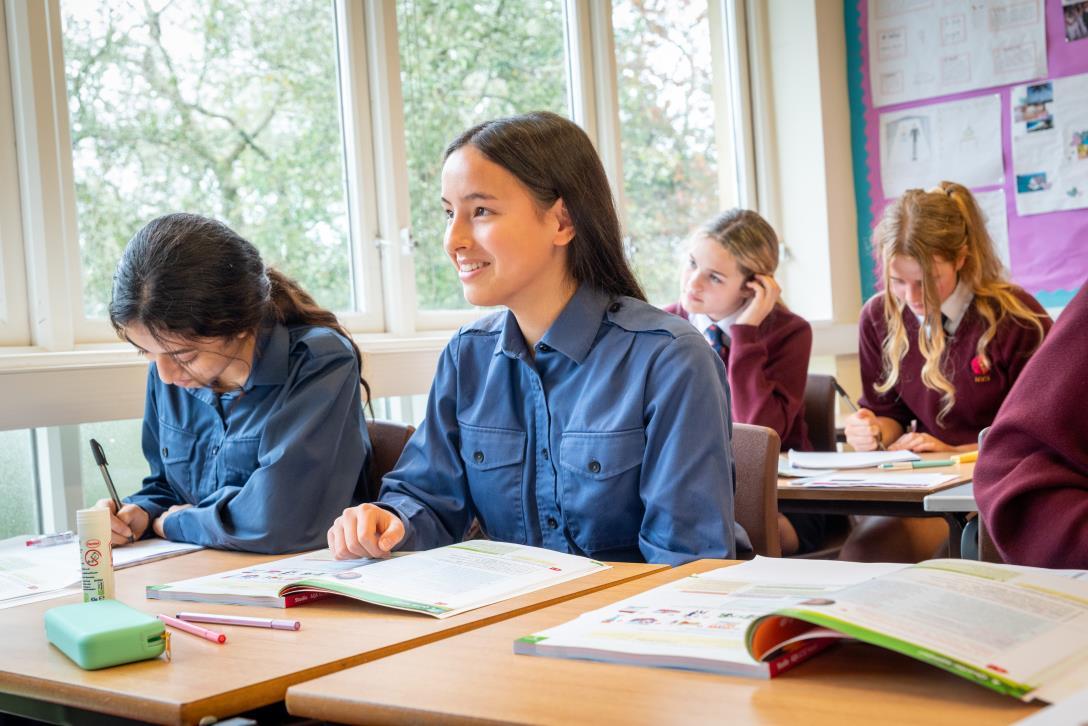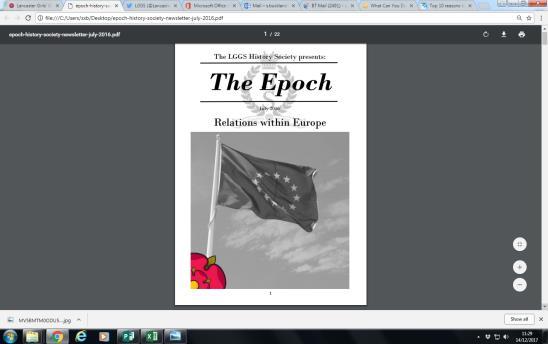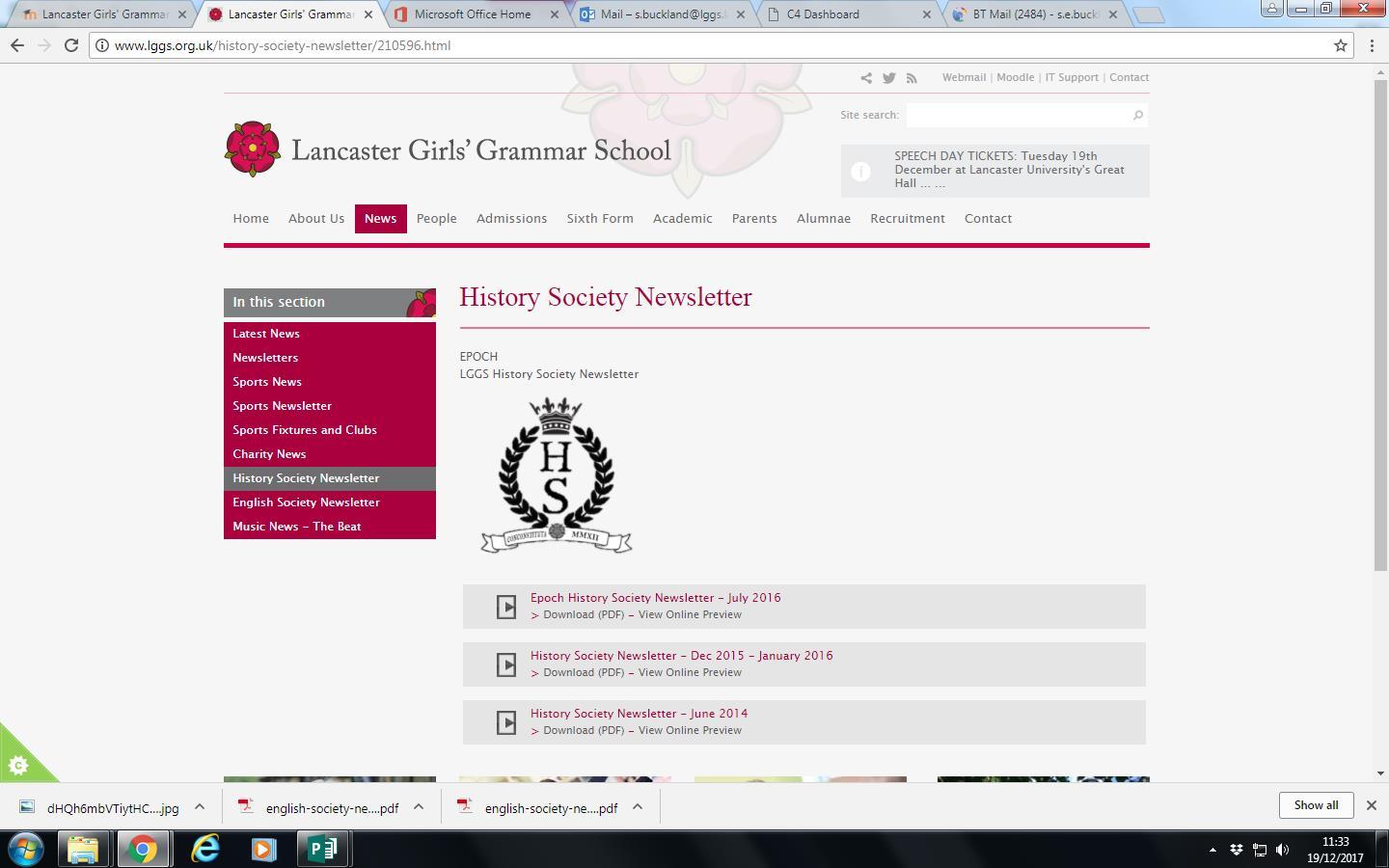
3 minute read
History
OPTION CHOICE HUMANITIES HISTORY
Gcse HISTORY
This is a GCSE course with exciting opportunities to study a wide range of different historical periods, topics and geographic areas, with a key focus on developing both breadth and depth of historical knowledge and understanding, as well as a wide range of higher order historical skills.
Unit 1 is focused on Understanding the Modern World. Section A of this unit is a period study focused on the USA: America, 1920-1973: Opportunity & Inequality. This topic will cover amongst other aspects; the Jazz Age, ‘Boom & Bust’, Ku Klux Klan, Prohibition & organised crime, The Great Depression, The New Deal, Popular Culture, Rock and Roll, Civil Rights, Feminism and the Social Revolution of the 1960’s.
Section B is a wider world depth study examining: Conflict & Tension, 1918-1939. This unit will focus on international relations in the aftermath of World War I: the Treaty of Versailles, the League of Nations - its formation, organisation, successes and failures - Appeasement, Hitler’s foreign policy and the origins of World War II.
Unit 2 is focused on British History and Shaping the Nation. Section A is a thematic study which traces developments across a broad period of history; Britain: Migration, empires and the people c.790 to present day. Topics studied will be based around historical change and continuity in this period and based on themes of: war, religion, government, economic resources, science technology, ideas such as imperialism, Social Darwinism, ‘civilisation and the role of the individual.
Section B is a British depth study including aspects of the historic environment during: Norman England, 1066-c.1100. Content covered will involve the major events of the conquest, occupation and control of England by the Normans in this period from the Battle of Hastings and including castle building, Harrying of the North, Domesday Book, feudal system and the Norman Church.
How it is Assessed
• Two written examinations each of 2 hours • Each paper is worth 84 marks, including 4 marks for spelling, punctuation and grammar • Each paper is worth 50% of the final mark
As part of our Unit 2 Section B study of Norman England c.1066 - 1100 we undertake a study of a historic environment. In recent years this has involved a day visit to historical sites such as Durham Cathedral and York. In 2023 Year 11 will be visiting paying a visit to Chester to study the Norman impact on the city.
W H Y H I S T O R Y ?
Transferable skills: Studying History provides skills of analysis and evaluation; the ability to analyse and then prioritise information is vital to effective decision making.
In order to make sense of current affairs it is important to study the past, as everything which is happening around us has been influenced by, and is a direct result of, that which proceeded it. History can be easily combined with a number of other subjects. History is a subject dominated by reading, students will develop self-sufficiency. Cultural awareness: By looking at the history of different cultures, a History student can build up a better understanding of why certain peoples act the way they do. Learn from the past: If you are to look at human history there are particular patterns which tend to repeat themselves.

CONTACT teacher Mr Yearnshire
EXAM BOARD AQA

‘GCSE is a thought-provoking and enjoyable subject which has extended my knowledge immensely and enabled me to develop a wide range of transferable, analytical and intellectual skills.’
Anna, Year 11 GCSE Student
‘I love the way that you can take any event in history and there is always a way to relate it to current affairs today. The broad range of topics which we have studied offer different perspectives on these issues. Being able to look at different opinions and make your own decisions is a key skill I feel GCSE History has given me.’
Amy, Year 11 GCSE Student


T h e E p o c h
Our students have the opportunity to join The LGGS History Society and contribute to the History Society’s newsletter ‘The Epoch’.
CAREERS Heritage Manager Historic Buildings Inspector Conservation Officer Museum Education Officer Museum or Gallery Curator Museum or Gallery Exhibitions Officer Secondary School Teacher Academic Librarian Archaeologist Archivist Broadcast Journalist Civil Service Administrator Editorial Assistant Information Officer Solicitor Web Content Manager











